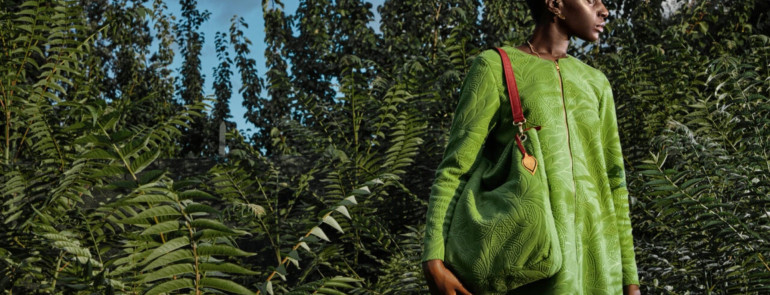African fashion is not only a source of creativity and beauty, but also a force for positive change in the world. Many African designers and brands are using their platforms to raise awareness, empower communities, and protect the environment. Couture Africa explores some of the ways that African fashion is promoting sustainability and social responsibility, and how you can support them.

Sustainability has always been part of African culture
One of the most striking features of African fashion is its diversity and richness of traditions. From the colourful prints of West Africa, to the intricate beadwork of East Africa, to the elegant embroidery of North Africa, each region has its own distinctive style and techniques. Many of these techniques are rooted in ancient practices that respect nature and minimize waste. For example, some designers use up-cycled materials or locally sourced fabrics and print them using natural dyes, such as indigo, henna, or turmeric. Others use barkcloth manufacturing, which is a process of making fabric from the inner bark of trees without harming them. Some also use woven textiles or kente, which are made by hand on looms and require no electricity or chemicals .
By using these traditional methods, African designers are not only preserving their cultural heritage, but also reducing their environmental impact and supporting local artisans. They are also creating unique and high-quality products that stand out in the global market.

Social Responsibility is at the Heart of African Fashion
Another way that African fashion is promoting social responsibility is by creating opportunities and empowering people, especially women and youth. Many African designers and brands are involved in social projects that provide training, education, health care, and income to marginalized groups. For example, Orange Culture, a Nigerian brand founded by Adebayo Oke-Lawal, is known for its gender-fluid menswear that challenges stereotypes and promotes diversity. The brand also collaborates with Lagos Space Programme, a queer collective that offers workshops and mentorship to young creatives. Another example is Hanifa, a Congolese brand founded by Anifa Mvuemba, which made headlines for its innovative 3D virtual fashion show in 2020. The brand also supports the Hanifa Foundation, which helps women in Congo access education and entrepreneurship.
By creating social projects, African designers and brands are not only giving back to their communities, but also inspiring others to follow their dreams and make a difference. They are also showing the world that African fashion is not only about aesthetics, but also about values and vision.

African fashion is more than just clothing. It is a movement that is transforming the world with its creativity, innovation, and impact. By supporting African fashion, you are not only enhancing your wardrobe, but also contributing to a more sustainable and socially responsible future. Keep it Couture Africa for a list of the Most Promising Sustainable African Fashion Designers from across the continent!

